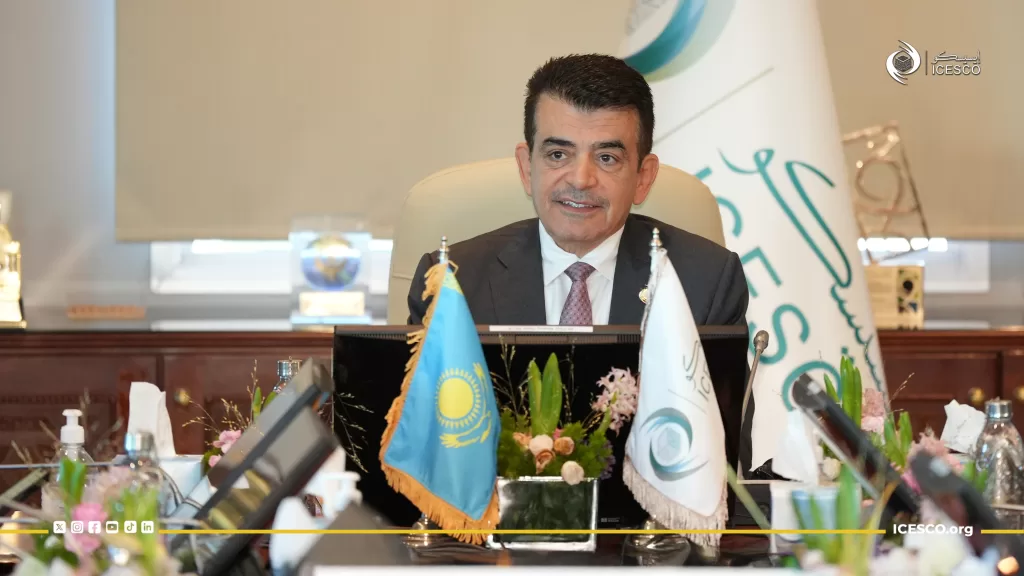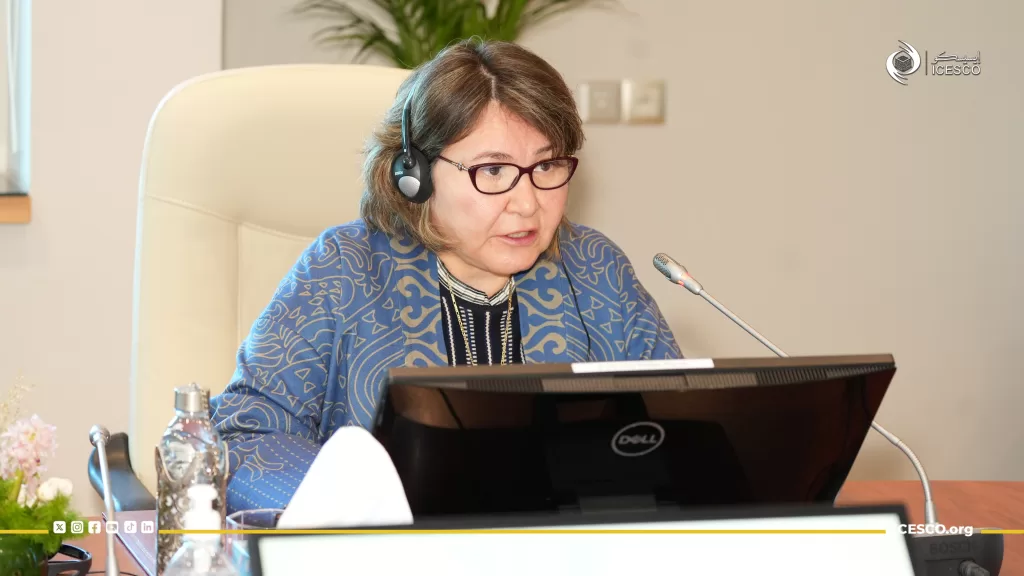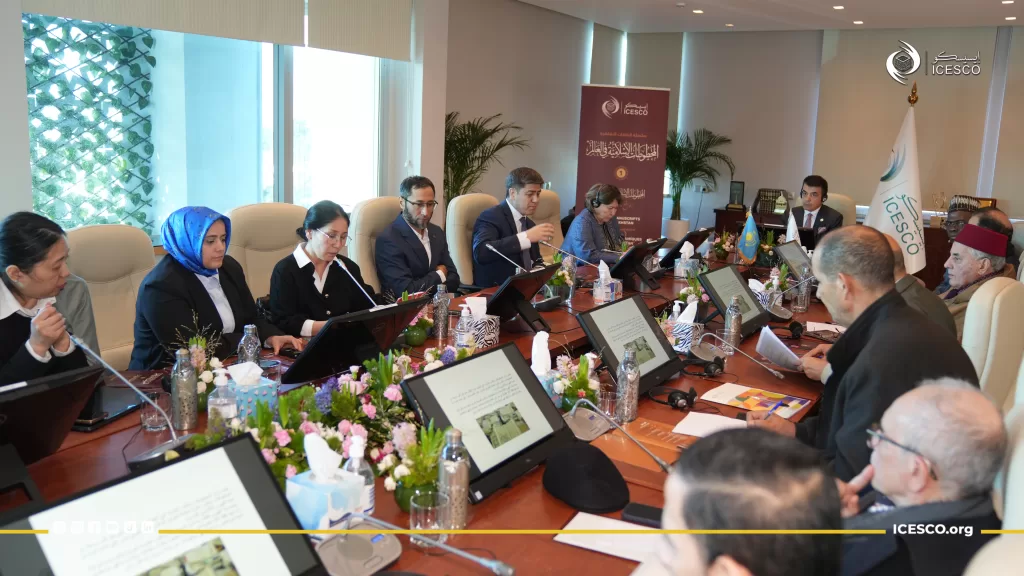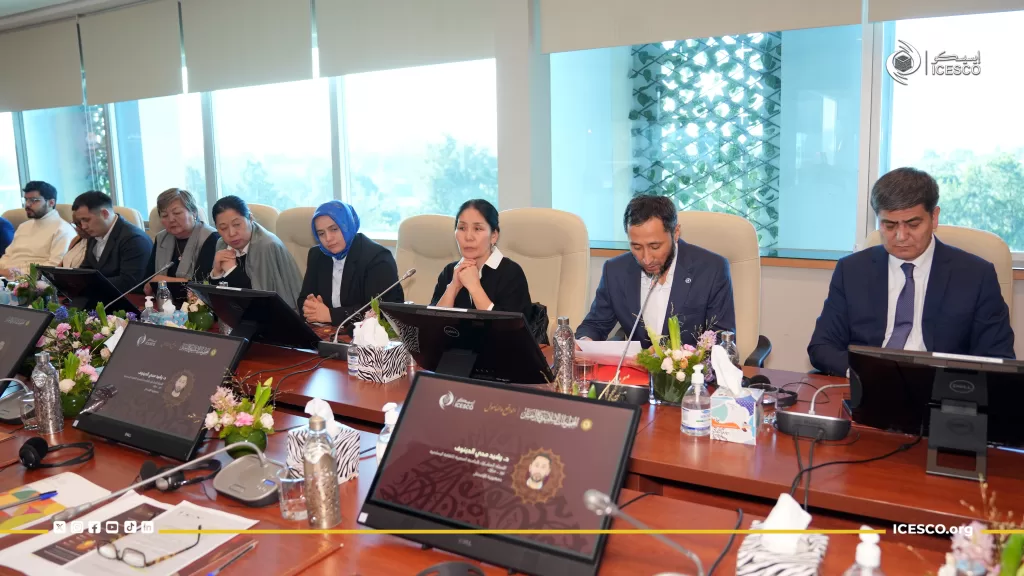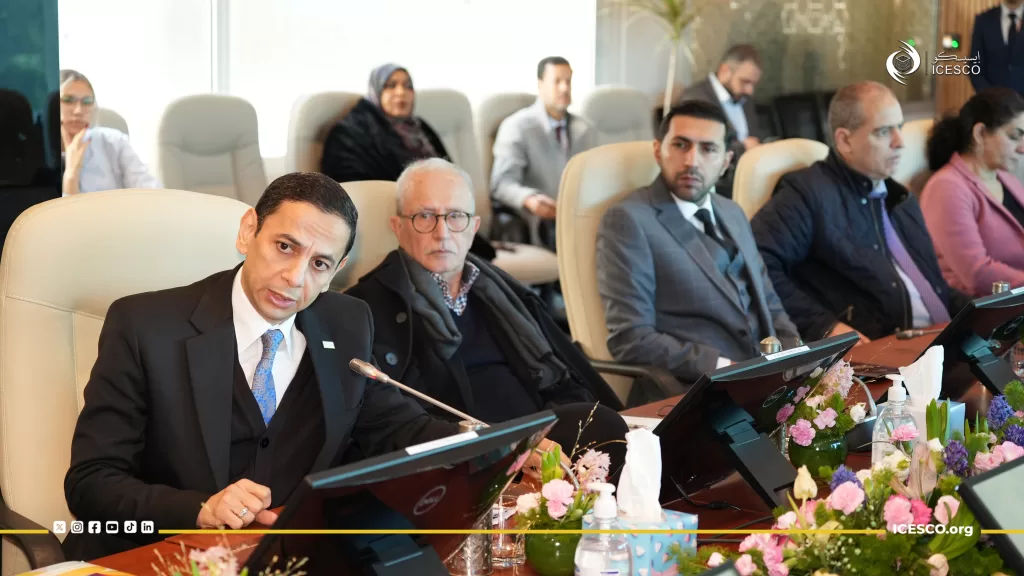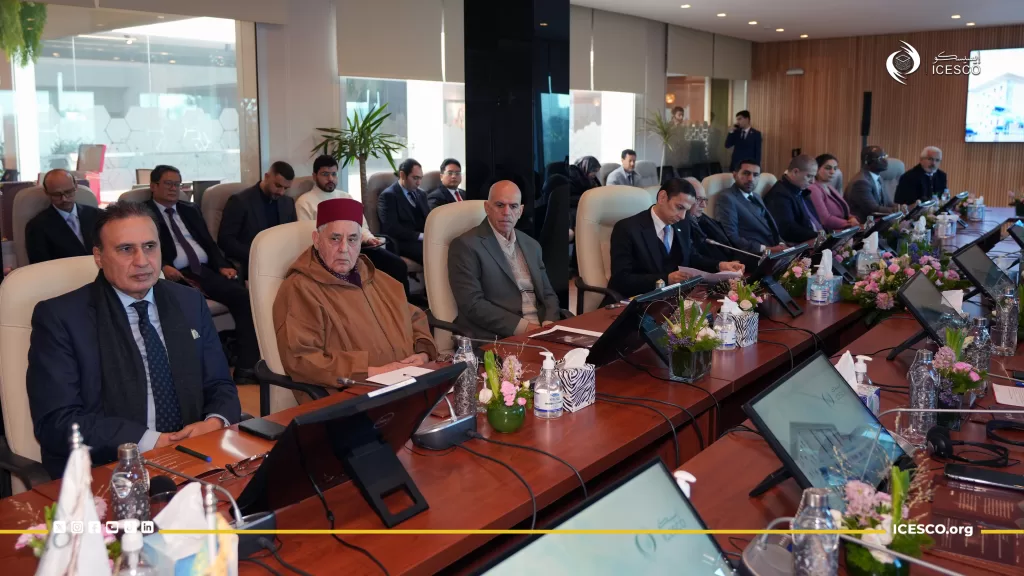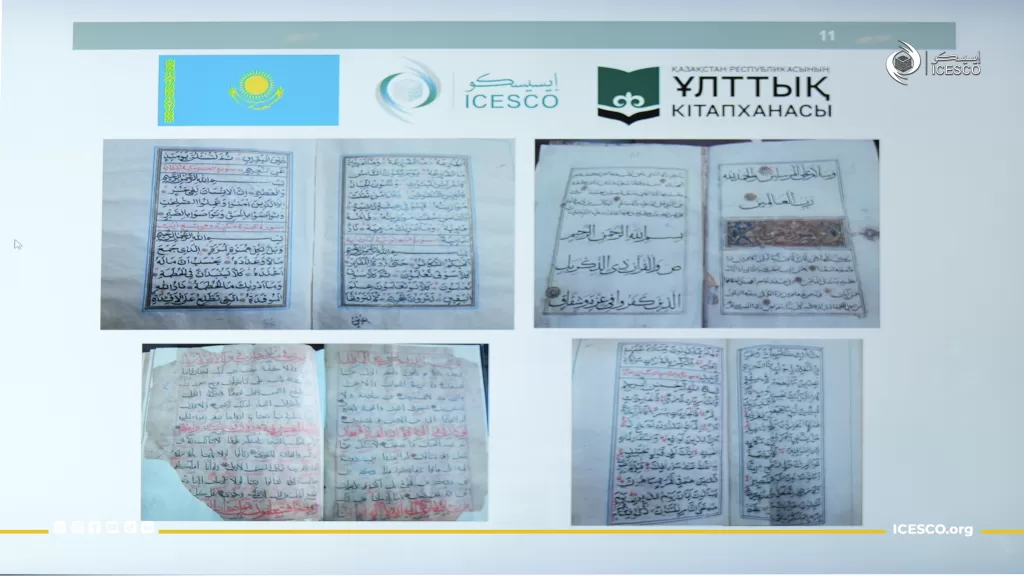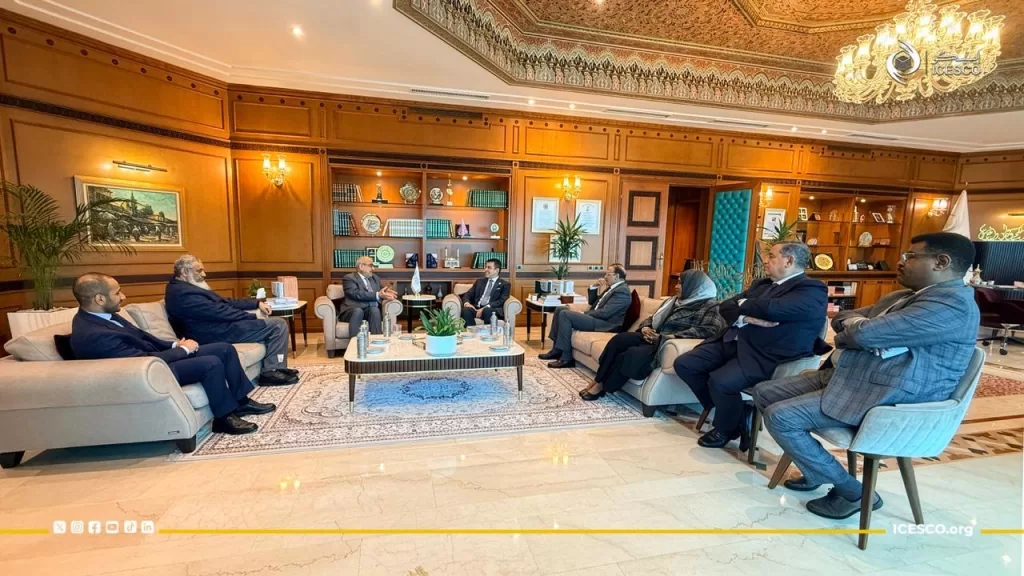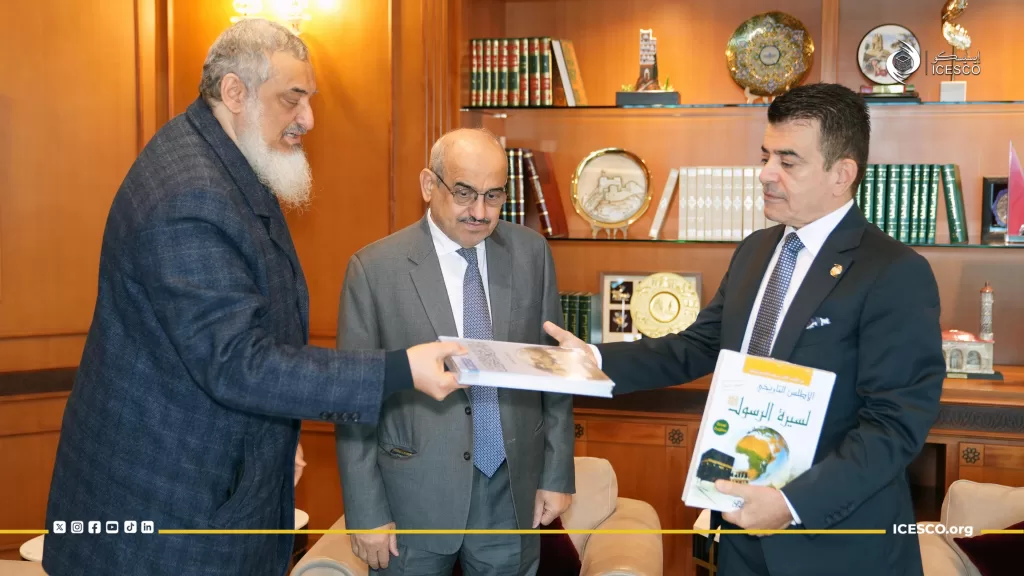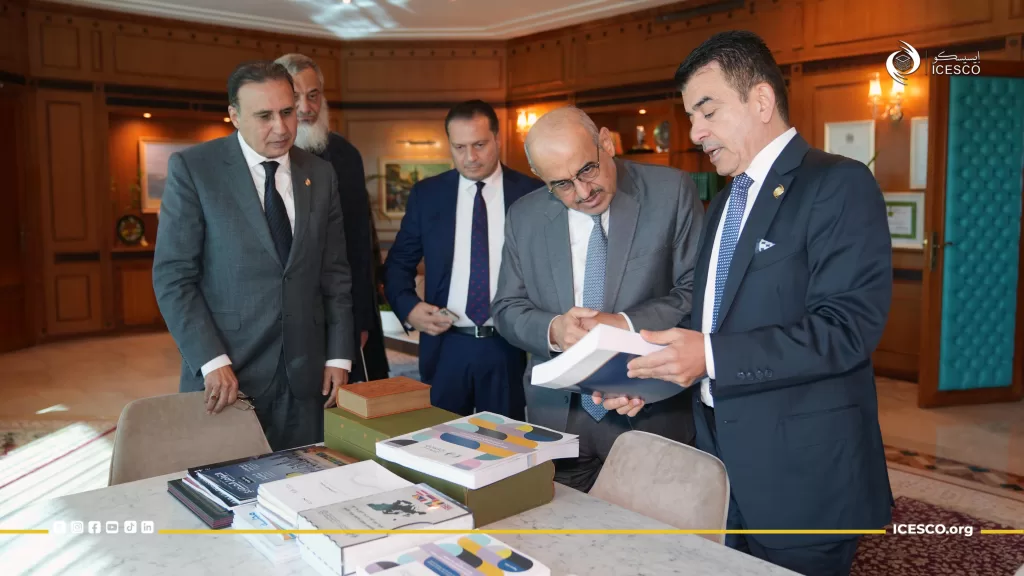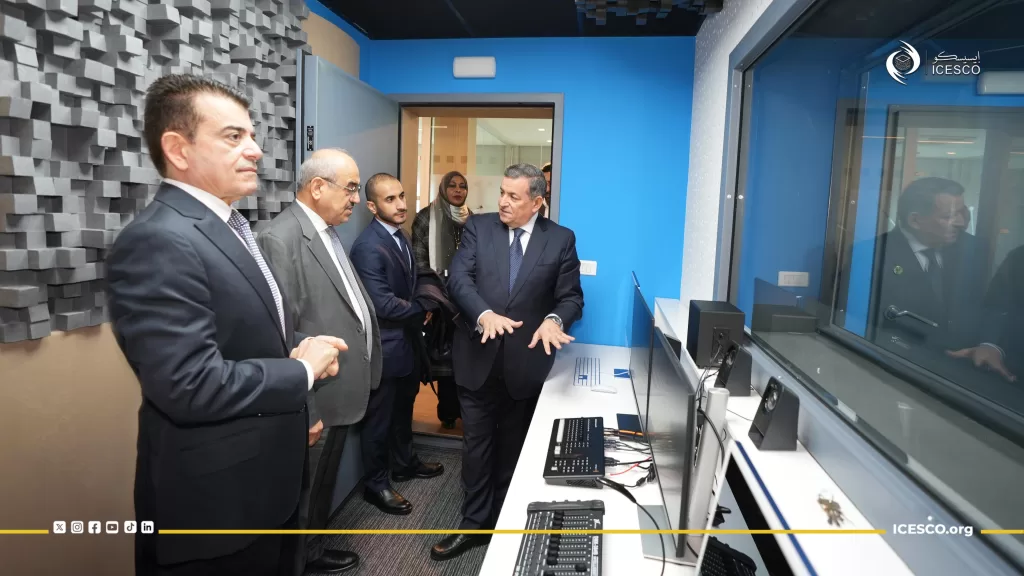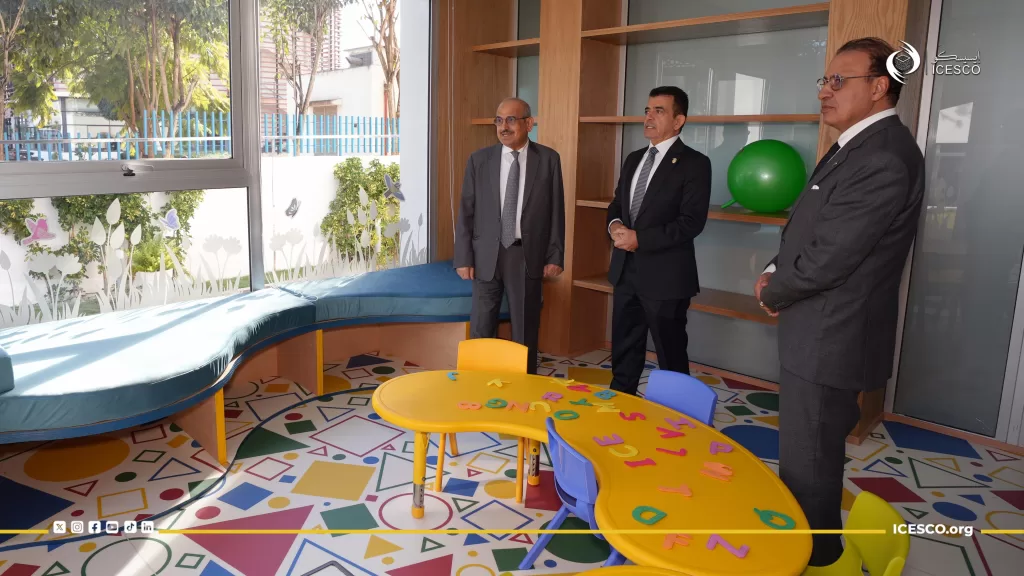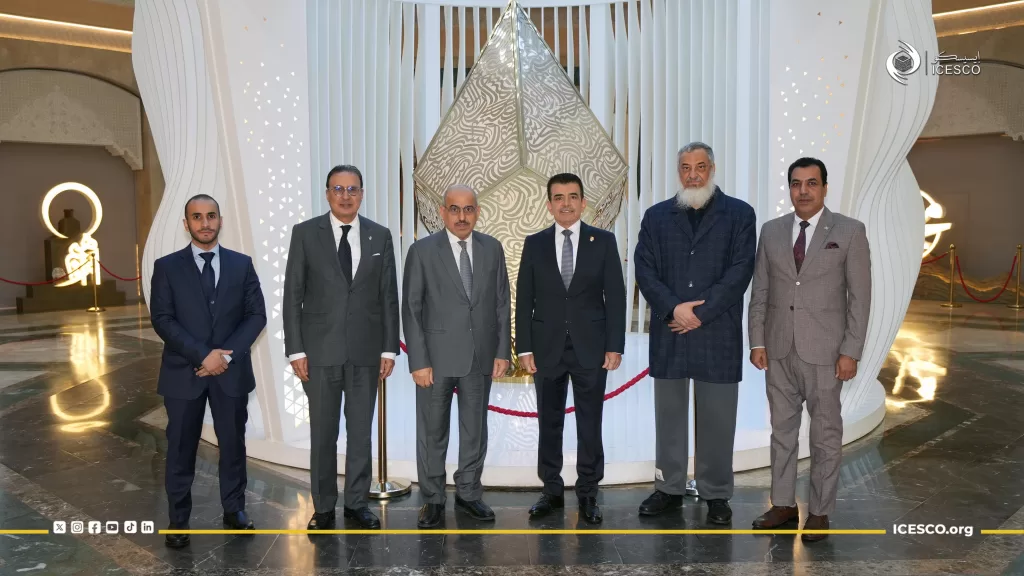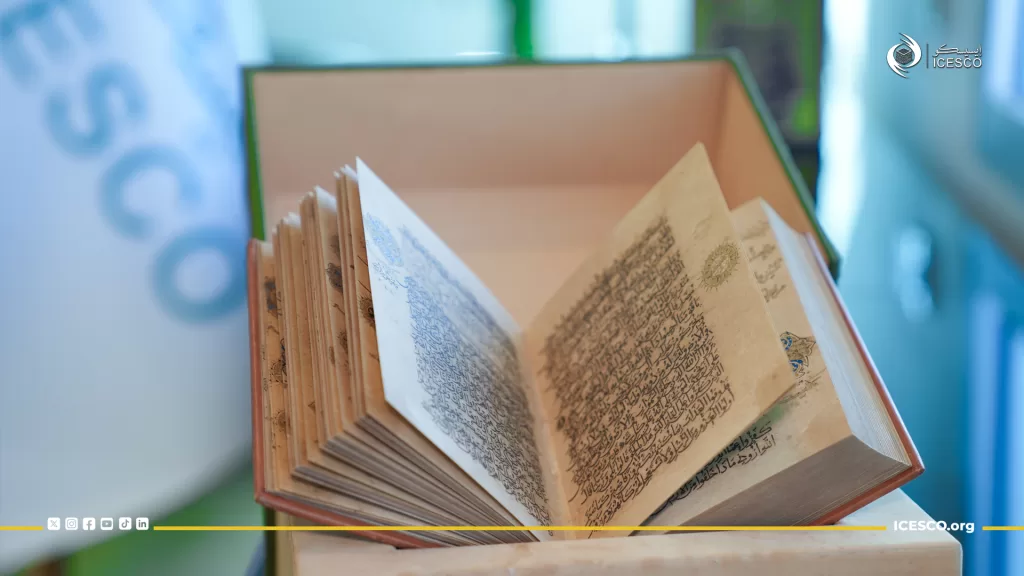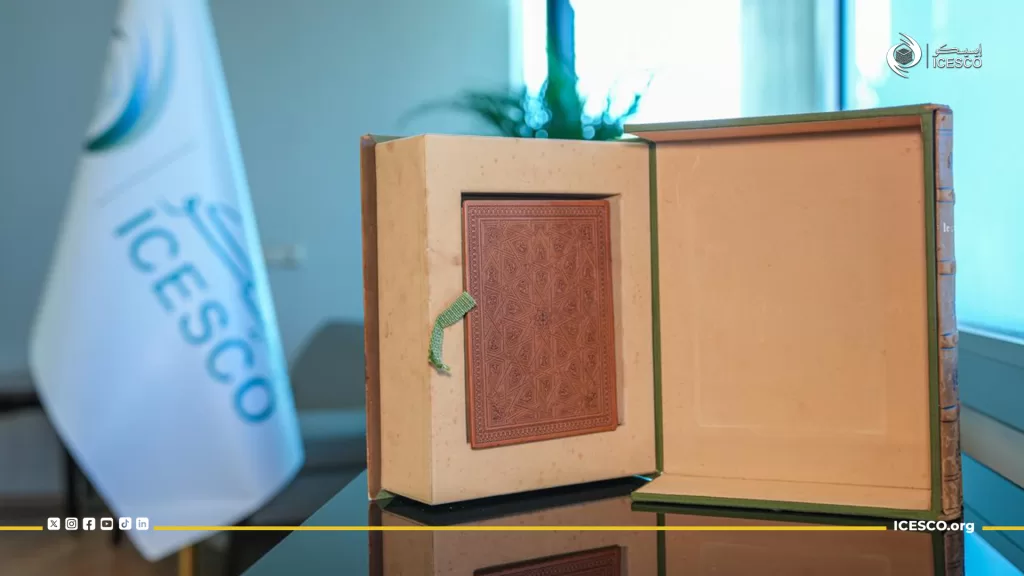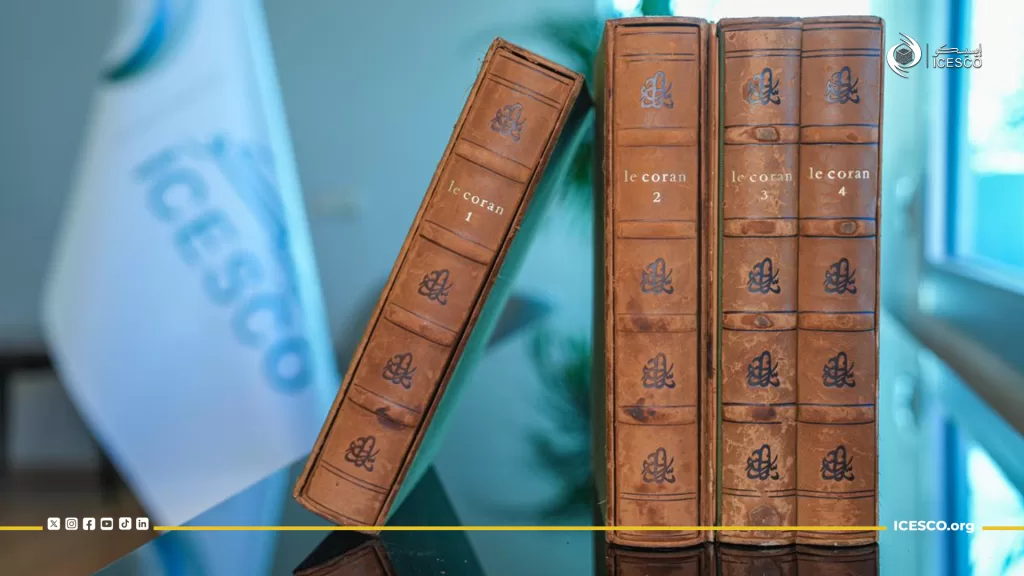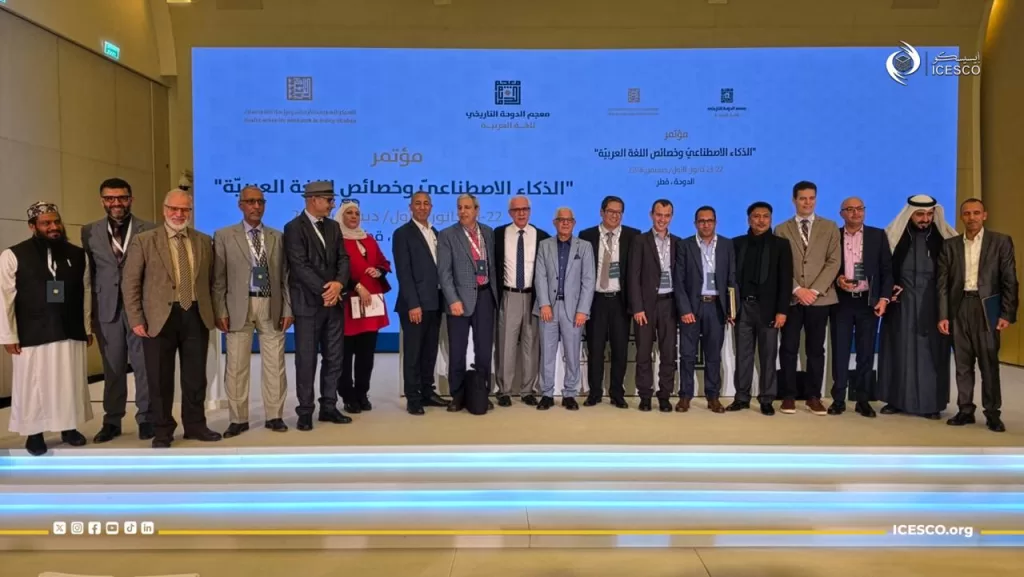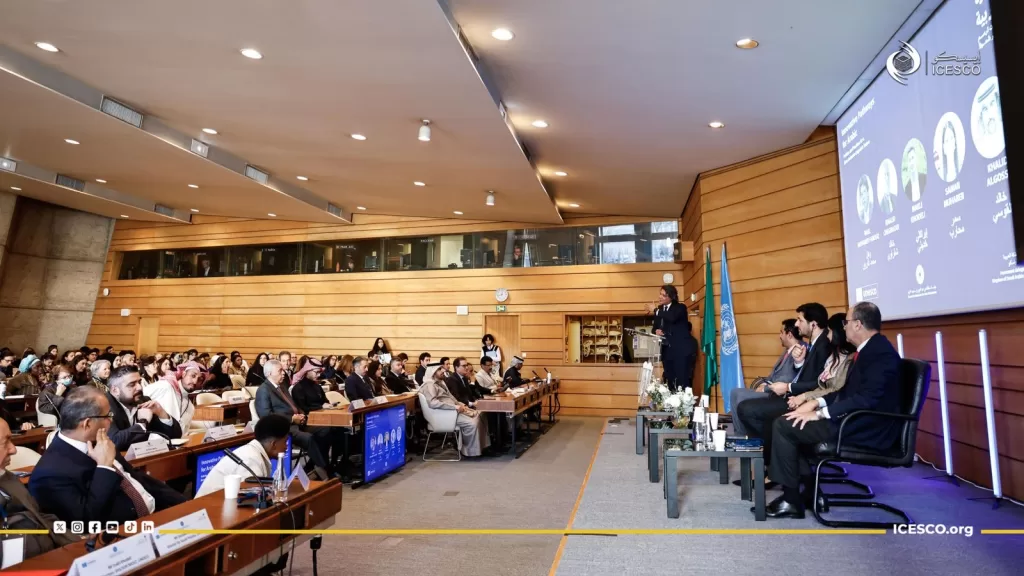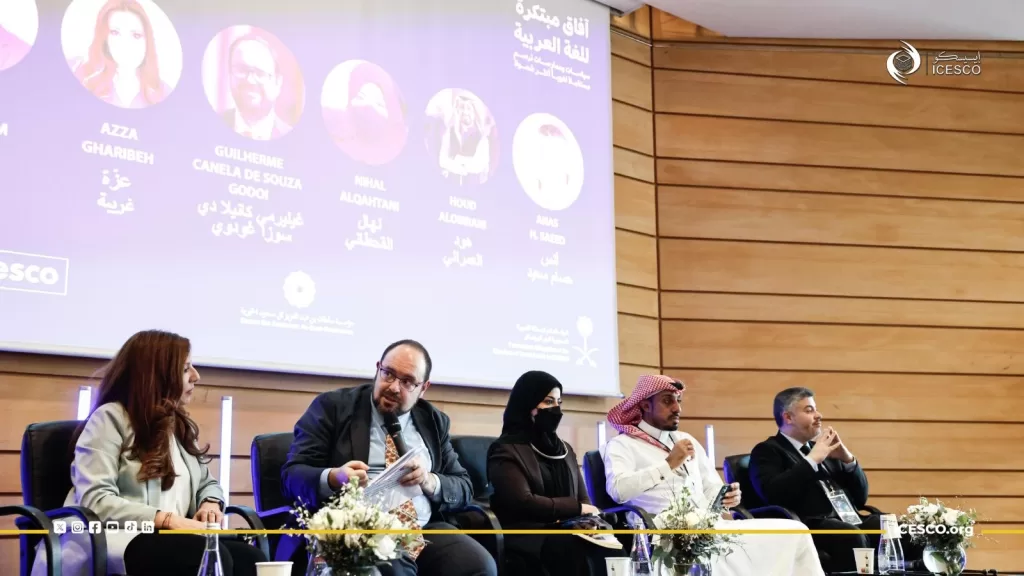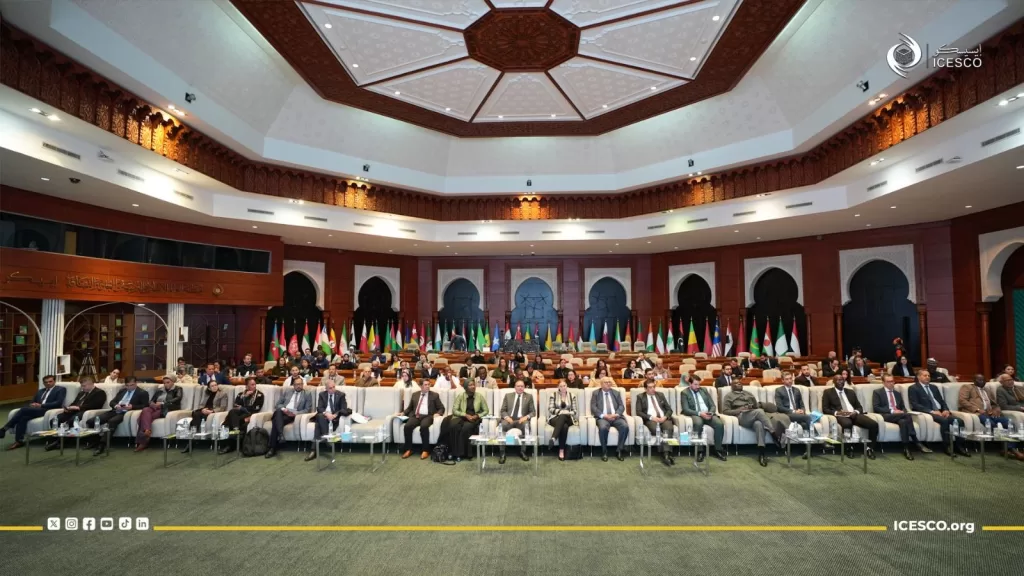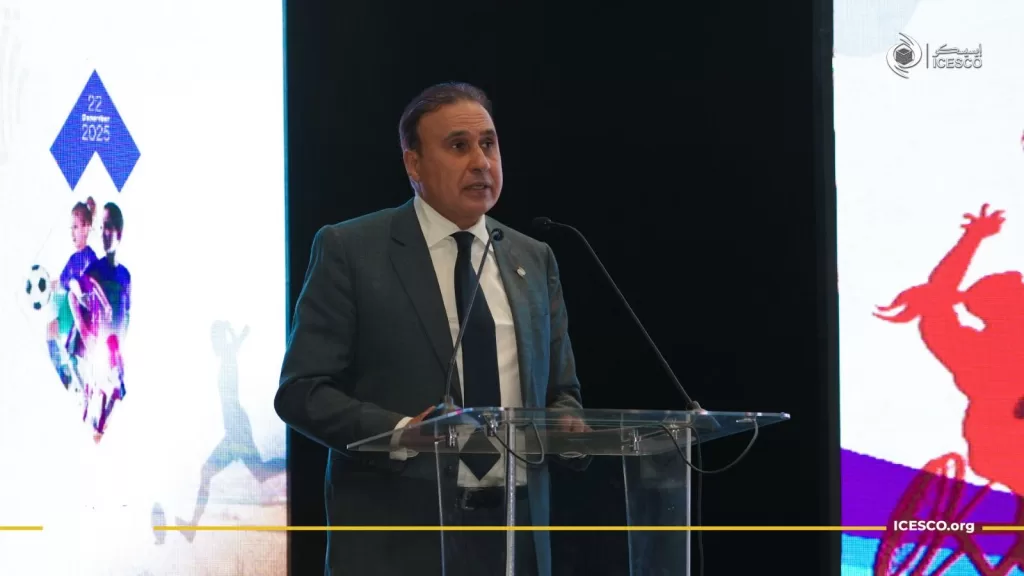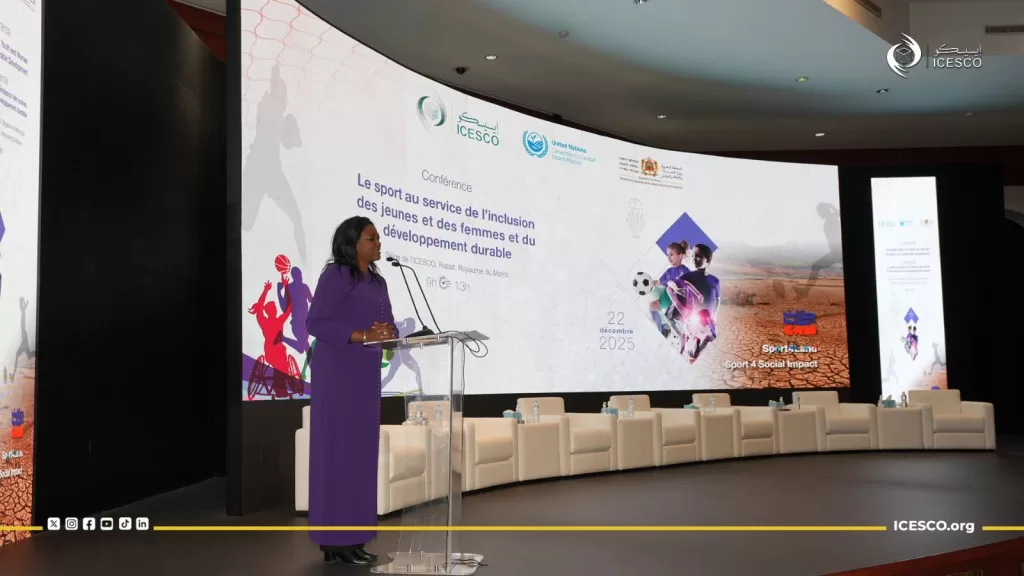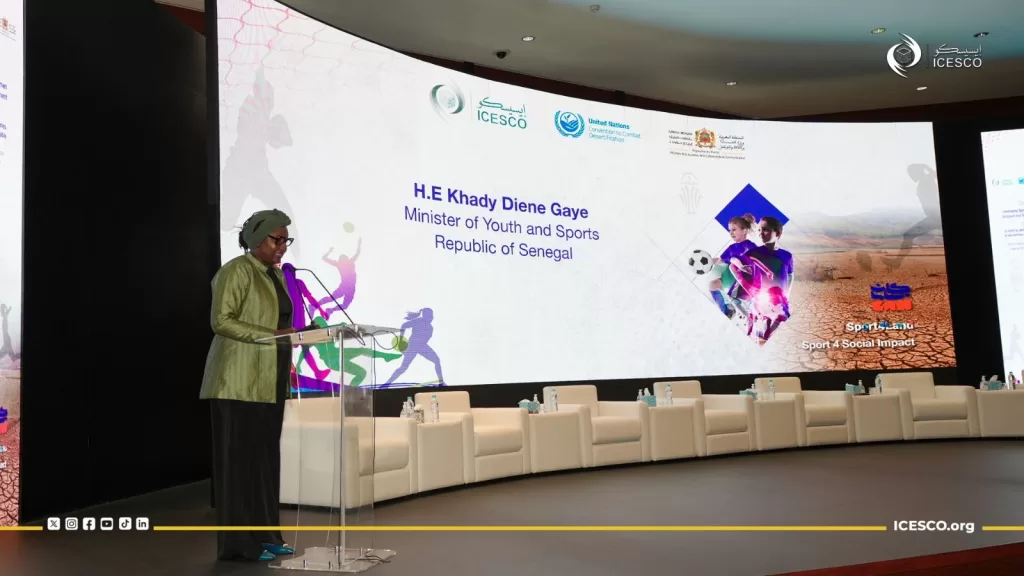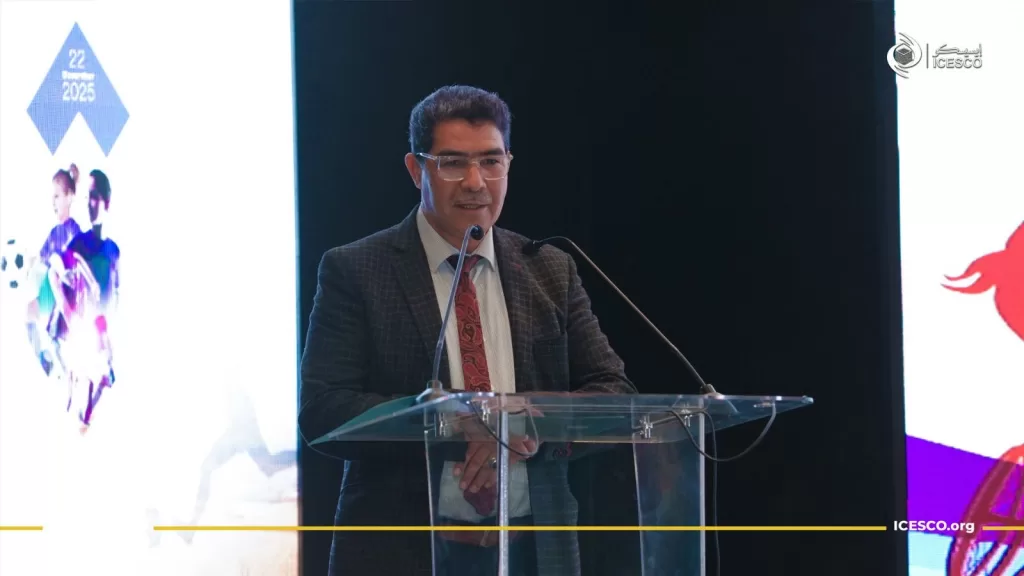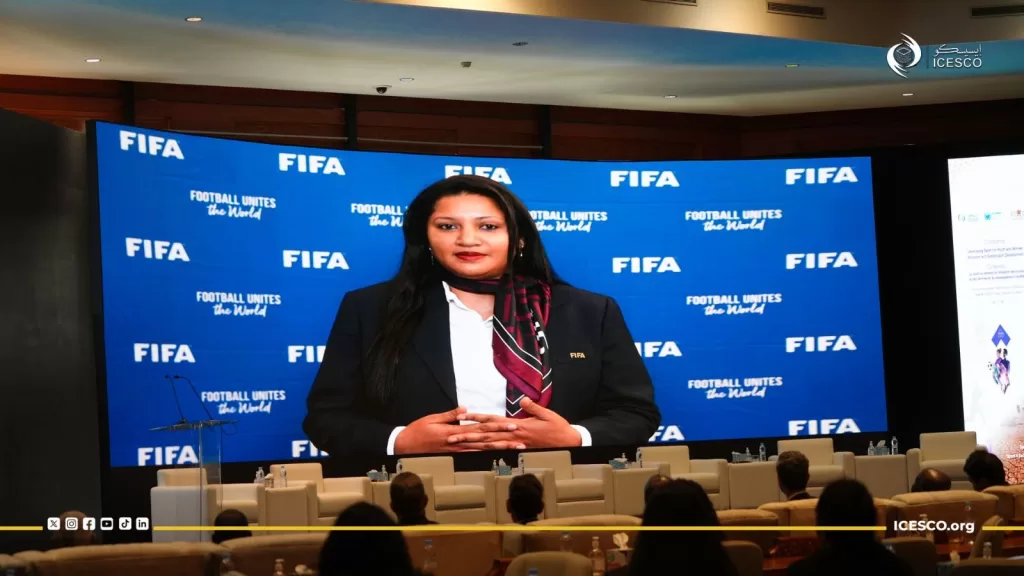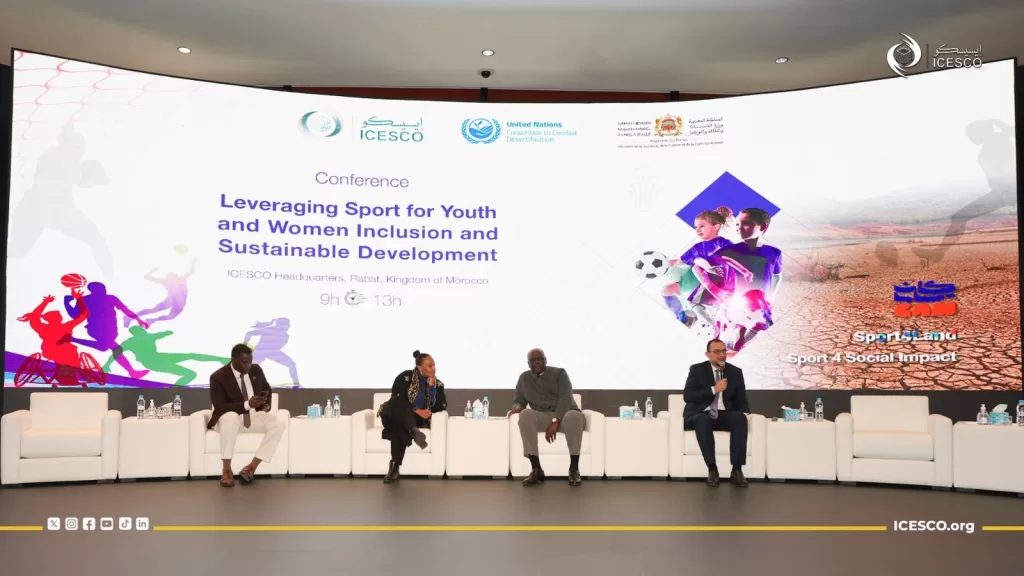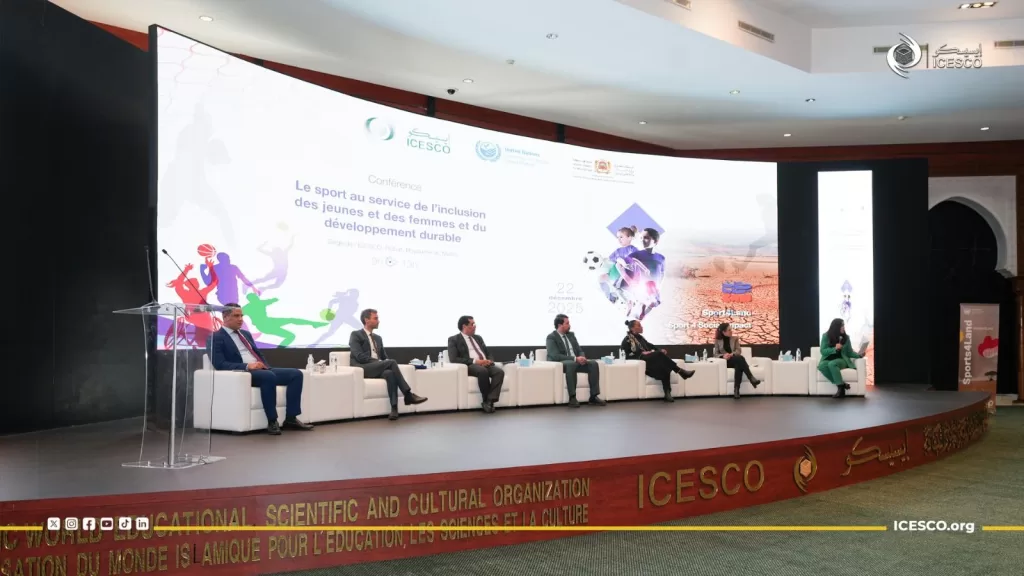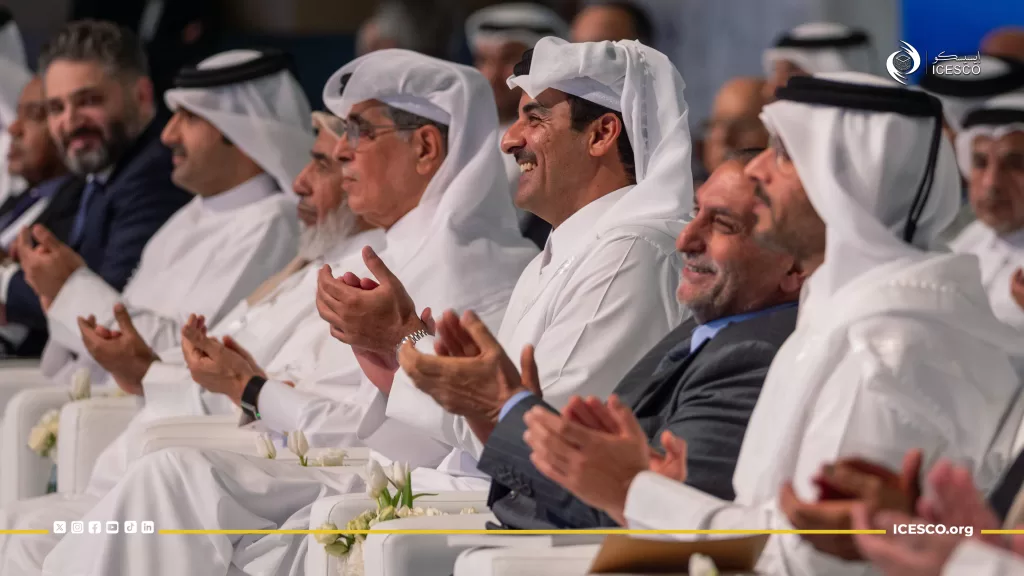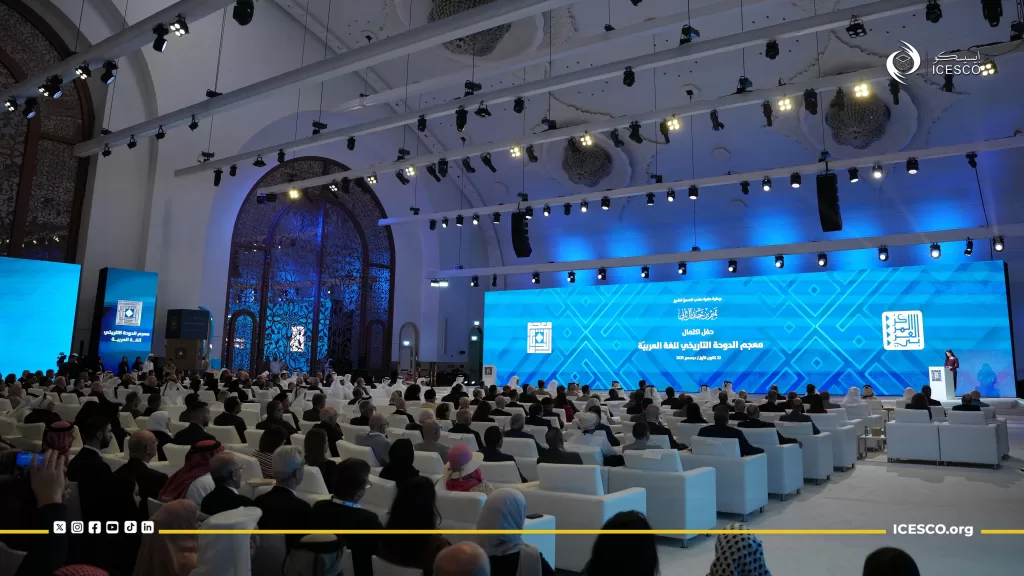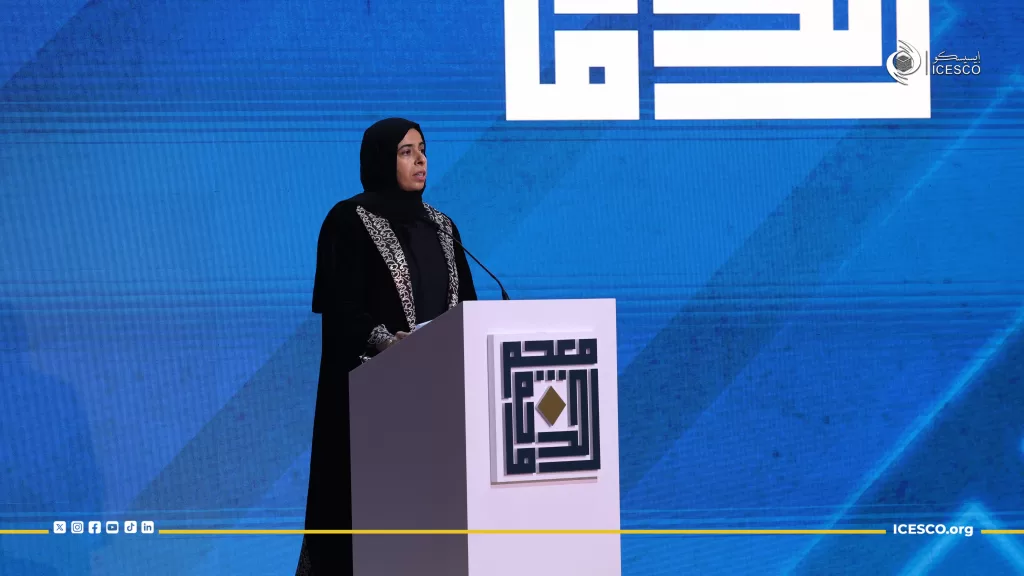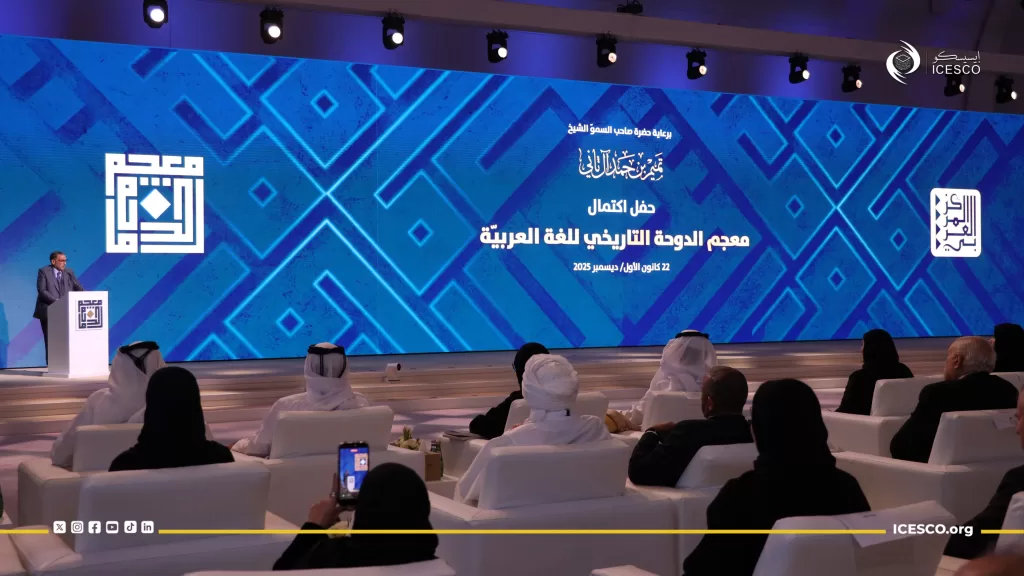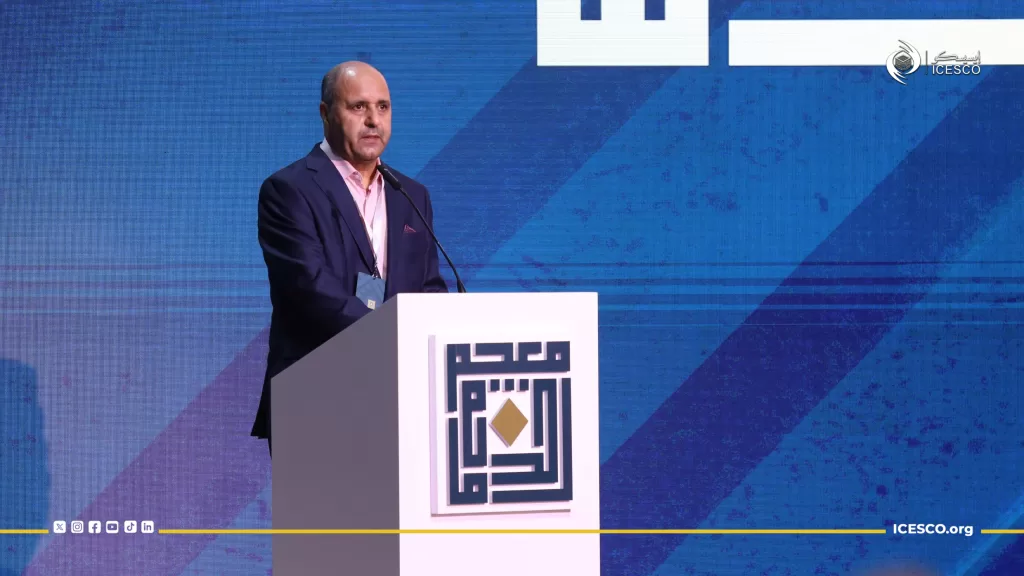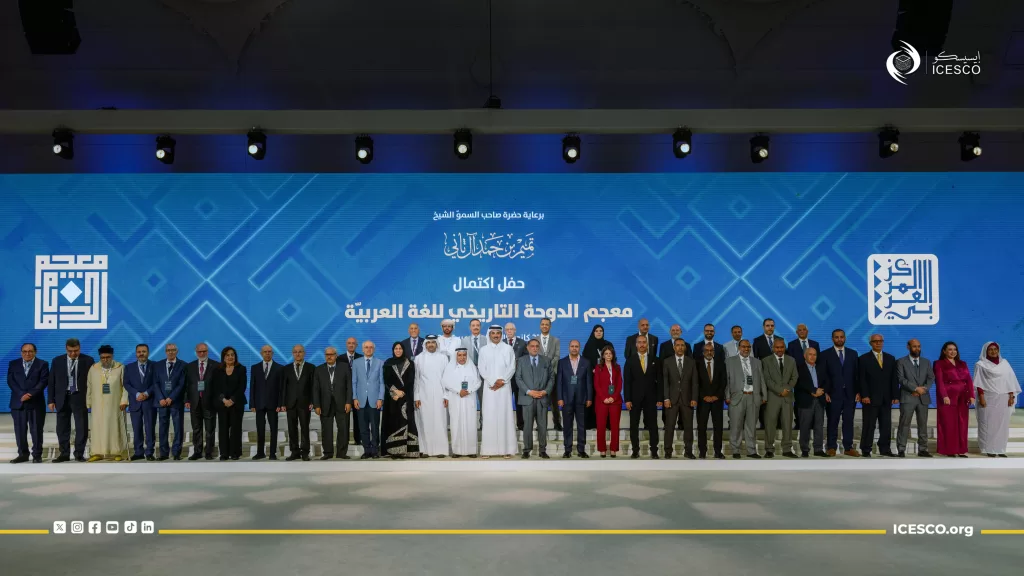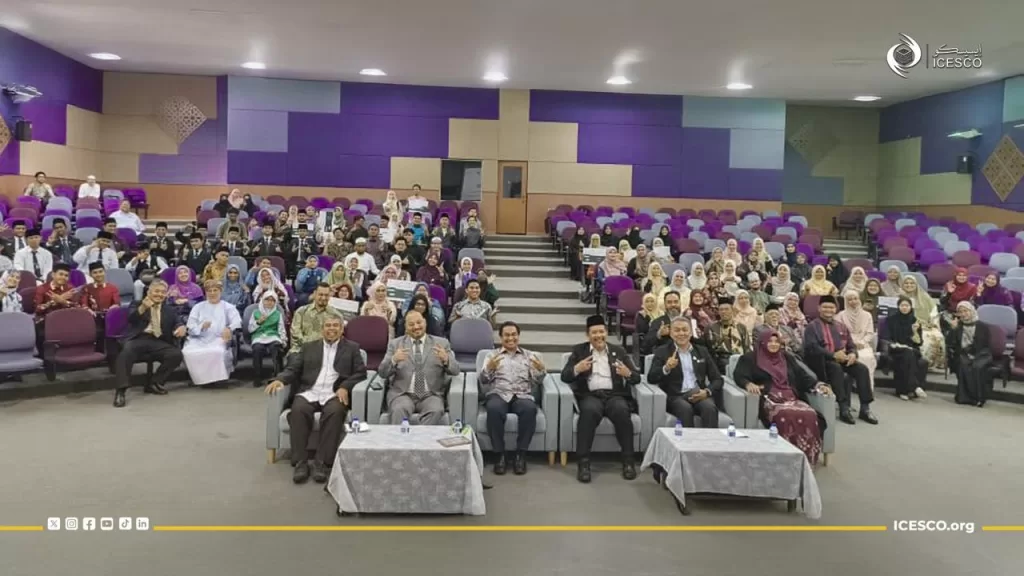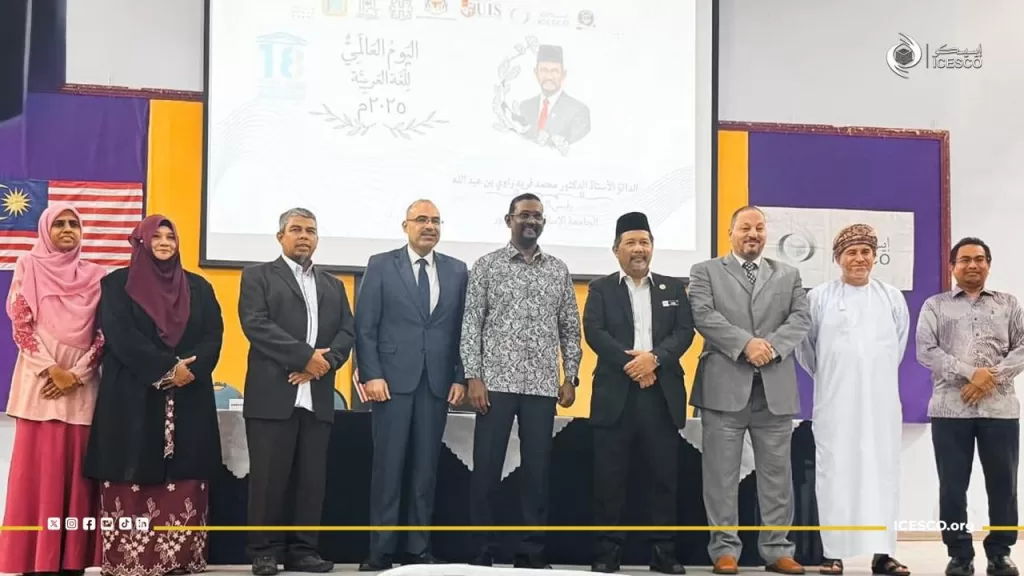In conjunction with the finals of the 2025 African Cup of Nations, currently hosted by the Kingdom of Morocco, the Islamic World Educational, Scientific and Cultural Organization (ICESCO), in partnership with the Moroccan Ministry of Youth, Culture and Communication and the United Nations Convention to Combat Desertification (UNCCD), held a conference on Monday, December 22, 2025, at its headquarters in Rabat under the theme “Leveraging Sport for Youth and Women Inclusion and Sustainable Development.” The event saw the participation of ministers, academics, and experts in the fields of youth and sports.
The conference explored ways sports can contribute to strengthening social and economic inclusion, support mental health and well-being, and stimulate new ideas in sports to serve the Sustainable Development Goals and effect real impact on those most in need.
In his opening remarks on behalf of Dr. Salim AlMalik, ICESCO Director-General (DG), Dr. Abdelilah Benarafa, Deputy DG, noted that the conference aligns with the Organization’s strategy to develop a sports model founded on collective action, institutional collaboration, innovation, and sustainability with the aim of amplifying the social impact of sports, positioning it as a catalyst for youth empowerment and women’s advancement, while reinforcing the principles of citizenship and solidarity.
Ms. Ramata Almamie Mbay, Head of ICESCO’s Social and Human Sciences Sector, presented the Organization’s renewed vision, which considers sport a lever for social inclusion, a driver of economic development, and a promoter of social cohesion.
In her turn, Ms. Khady Diène Gaye, Minister of Youth and Sports of Senegal, confirmed that her country has decided to prioritize sports as a central component of youth-centered public policies. She highlighted Senegal’s active involvement in a process of systemic transformation within the “Senegal 2050” Agenda.
Mr. Abdelrahman Ajbari, Head of the Division of Youth Institutions at the Moroccan Ministry of Youth, Culture, and Communication, stated that sport in Morocco has become a significant catalyst for development, contributing to the enhancement of governance, training, and infrastructure modernization in the Kingdom. Ms. Laura Bill, UNICEF Representative in Morocco, underscored the pivotal role of sports in fostering inclusion and catalyzing sustainability and innovation.
In a recorded speech, Ms. Kanizat Ibrahim, Former CAF Vice-President and current member of the FIFA Council, underscored the potential of football to promote youth inclusion, women’s empowerment, and community cohesion. She emphasized the importance of sustainable partnerships and programs that can translate this approach into tangible results.
The conference featured two panel discussions. The first focused on sport, social and economic inclusion, and its role in youth employment. The second centered on sport, well-being, social cohesion, and sustainability. The conference concluded with a speech by Ms. Kenza Abourmane, Director of Youth at the Ministry of Youth, Culture, and Communication of the Kingdom of Morocco.



